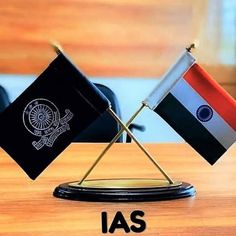Introduction:
The Union Public Service Commission (UPSC) Civil Services Examination is a pivotal gateway for aspiring candidates to the prestigious Indian Civil Services. Among the myriad of optional subjects offered, Civil Engineering stands out for its technical rigor and practical applicability. The UPSC Civil Engineering optional syllabus is meticulously designed to test the candidates’ engineering acumen, analytical skills, and their ability to apply engineering solutions to real-world problems. This comprehensive guide aims to shed light on the various facets of the syllabus, providing aspirants with a clear roadmap to navigate through this challenging yet rewarding.

Paper I:
UPSC Civil Engineering Syllabus – Descriptive Overview
- Building Materials:
This section delves into the properties, characteristics, and uses of various construction materials, including metals, plastics, timber, brick, cement, concrete, and steel. Candidates are expected to understand material selection criteria, durability, and sustainability aspects in construction projects. - Solid Mechanics:
This area covers the fundamentals of elasticity, stress-strain relationships, and the behavior of materials under various loading conditions. Topics include the analysis of stress, strain, bending moments, shear forces, and torsion in structural elements. - Structural Analysis:
This part focuses on the methods and principles used in analyzing structures. It includes the study of determinate and indeterminate structures, influence lines, and the application of energy methods. Understanding the behavior of beams, frames, and arches under various loads is crucial. - Design of Steel Structures:
Candidates will explore the principles and practices involved in the design of steel structural elements. This includes beams, columns, and tension members, along with connections, using relevant codes of practice and considering factors like load, stress, and safety measures. - Design of Concrete and Masonry Structures:
This section addresses the design principles of reinforced concrete and masonry structures, focusing on beams, slabs, foundations, walls, and columns. It also covers the use of pre-stressed concrete and the relevant codes for design and construction. - Construction Practice, Planning, and Management:
This area emphasizes the modern practices in construction, including planning, equipment choice, project management techniques, cost estimation, and construction safety. It explores the lifecycle of a construction project from conception to completion. - Fluid Mechanics:
This topic covers the fundamentals of fluid properties, fluid statics, kinematics, and dynamics. It includes the study of flow through pipes, flow measurement, dimensional analysis, and similitude, crucial for understanding fluid behavior in engineering applications. - Open Channel Flow:
Candidates will learn about the flow of fluids in open channels and the design of channels. Topics include specific energy, critical flow, hydraulic jump, and flow control structures, essential for water resource engineering. - Hydraulic Machines and Hydropower:
This section explores the principles and operations of hydraulic machines, such as turbines and pumps, and their application in hydropower projects. Efficiency, cavitation, and power generation aspects are covered.
Paper II:
UPSC Civil Engineering Syllabus – Descriptive Overview
- Water Resources Engineering:
Focuses on the planning, development, and management of water resources. Topics include hydrology, flood control, reservoir and dam design, irrigation principles, and water distribution systems. - Environmental Engineering:
This area covers the principles and practices of environmental engineering, including water and wastewater treatment, solid waste management, air and noise pollution control, and environmental impact assessment. - Geotechnical Engineering:
Examines soil mechanics and the behavior of soil under various loading conditions. It includes the study of soil properties, foundation types, earth pressures, slope stability, and subsurface exploration techniques. - Transportation Engineering:
Covers the design, construction, and maintenance of transportation systems. It includes topics on pavement design, traffic engineering, airport runway design, and the planning of transportation facilities. - Surveying:
This section introduces the principles and methods of surveying, including leveling, traversing, triangulation, contouring, and the use of modern instruments like GPS and GIS for mapping and analysis. - Geology:
Provides an understanding of geological principles applicable to civil engineering, including mineralogy, rock types, structural geology, and the role of geology in the construction of tunnels, dams, and foundations. - Soil Mechanics:
Focuses on the engineering properties of soils, including classification, compaction, permeability, and shear strength. It forms the basis for analyzing and designing foundations and earth-retaining structures. - Foundation Engineering:
This topic deals with the design and analysis of foundation systems, including shallow and deep foundations, pile foundations, and retaining walls, considering bearing capacity and settlement criteria. - Highway Engineering:
Encompasses the aspects of highway planning, design, construction, and maintenance. It includes topics on road alignment, material characterization, pavement design, and traffic management systems.

Conclusion:
Embarking on the UPSC journey with Civil Engineering as your optional subject is a testament to your commitment to leveraging technical expertise for public service. The syllabus, while exhaustive, paves the way for a deep understanding of engineering principles and their applications in solving societal challenges.
For Detailed Information; CLICK HERE
For the 2024 UPSC Calendar; CLICK HERE